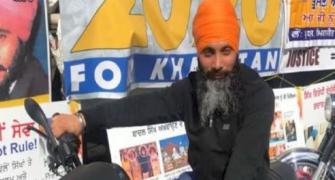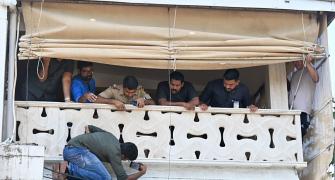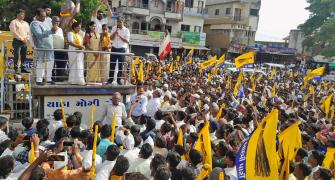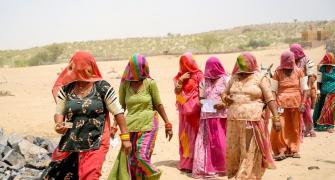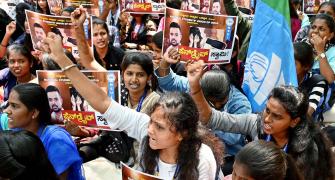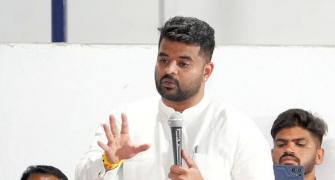Expressing concern over the decreasing sex ratio, parliamentarians from different political parties and the Confederation of Indian Industry on Friday resolved to start a campaign against increasing female foeticide in India.
After a round table discussion on 'Missing Daughters', representatives of business lobby group CII and 20 parliamentarians decided to set up a national forum and a core group to spread awareness and sensitise people on the issue.
The national forum will include members of Parliament and the core group will have people from different fields like doctors, corporate groups and social activists.
The national average sex ratio in India in 1991 was 945 girls per 1,000 boys and it declined to 927 in 2001. The children counted in the sex ratio are between 0-6 years of age.
Activists and experts attribute it to female foeticide illegally conducted in a number of clinics and pathological laboratories across all cities, towns and villages. The doctors escape by loopholes in the Pre-Natal Diagnostic Test Act that bans sex determination of foetus, but allows it in certain conditions.
Anand Sharma, Rajya Sabha member of the Congress party, said there was need to implement the existing laws. Former federal minister from Bharatiya Janata Party Sumitra Mahajan said the doctors conducting such tests should also be brought within the ambit of law and must be punished if found guilty.
Former actress and Samajwadi Party MP Jaya Prada said society should learn to accept victimised women -- be it rape or dowry or if she is forced to abort the foetus in her body. For this, Prada said, there should be an awareness campaign.
Harpal Singh, member of the CII National Committee on Health Care, and who coordinated the discussion, expressed CII's support in fighting the menace which has political, economic and social implications.
The decreasing sex ratio is worse in educated, elite and economically well-off section of the society where sex selection technology is easily available.
All the nine districts in Delhi in 2001 have a child sex ratio of less than 900 per 1,000 boys, with an exception of central Delhi where the ratio is 902 per 1,000 boys. Interestingly, central Delhi is the old quarters of the Walled City, also called Old Delhi, with little education or basic civic infrastructure. The most elite and prosperous districts -- south and south-west -- have a sex ratio of 886 and 845 respectively.
Similarly, even the most literate state of Kerala is facing a decreasing sex ratio.

